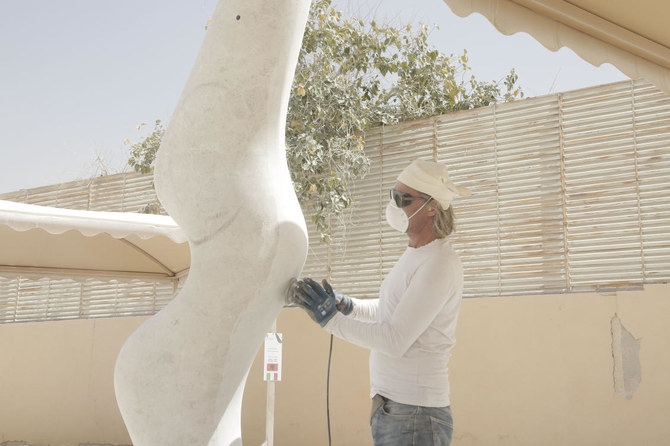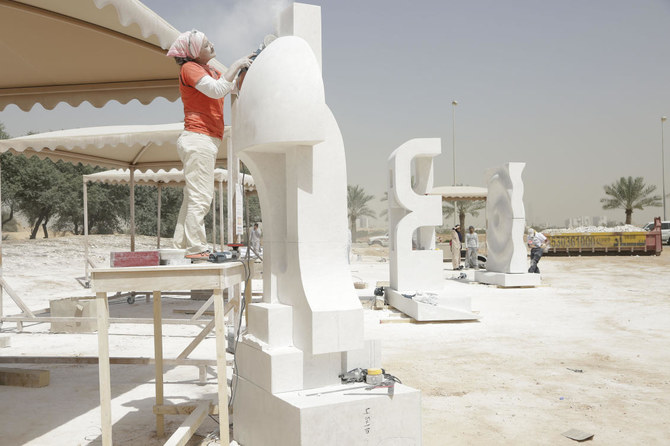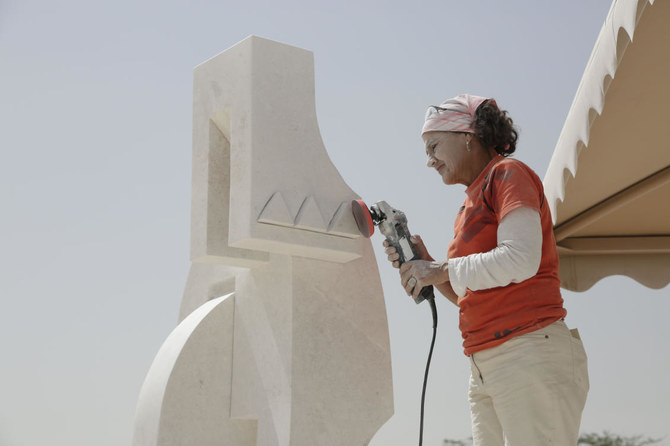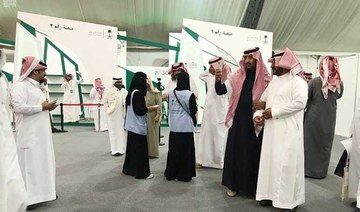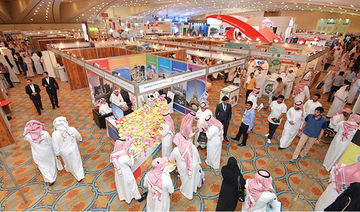RIYADH: The first Tuwaiq International Sculpture Symposium kicked off in Riyadh on Monday morning in the capital’s Diplomatic Quarter, featuring the works of 23 artists from 18 different countries.
Participants of note include South Korean sculptor So Dong Choe, Mexican artist Carlos Monge, and Japan’s Yoshin Ogata. The symposium’s three Saudi participants are Ali Al-Toukhais, his nephew Talal Altukhaes, and Mohammad Althagafi.
Altukhaes, an organizer as well as a participant, told Arab News that the goal of the symposium was to create an environment in which artists could share techniques, collaborate with one another, and promote a sense of camaraderie.
The sculptors will assist each other in creating their artworks despite the language barriers between them, but Altukhaes told Arab News that words were not as important as demonstrations of technique, given most of the sculptors would wear ear protection to guard against the constant buzz of heavy machinery anyway.
Since their arrival, the international artists have enjoyed tours of the city, including to Al-Masmak Fortress, as well as newer landmarks such as Kingdom Tower. “Everyone is happy, you can see it in their smiles as they’re working,” Altukhaes said.
New Zealander Anna Korver, covered from head to toe in white dust, grinned as she told Arab News how excited she was to be part of the symposium.
Ogata expressed how happy he was to be in Saudi Arabia for the first time, and that he was enjoying the new experience. “It’s a nice place. The dry climate is a little different to what I’m used to, but the heat is something I’m accustomed to. It’s always a pleasure to work with other sculptors — I usually work alone in my studio back home, so I enjoy seeing everyone here together, and being able to watch them work.”
“It’s my first time in Saudi Arabia, and I was always curious about what it would be like. I had no idea what to expect when I first came, but I’ve been having a great time so far. The symposium is perfect. It is great to work with people who really know what we need as artists — we have all the assistance we need.
“My work is always sort of a narrative about women, and I often like to use the dress form as a symbol of femininity. I’ve chosen to incorporate the hijab into my design. It should give a feeling of lightness when it’s viewed.”
Al-Toukhais, who has had work displayed all over the Arab world, said the secret to becoming an excellent sculptor was patience and commitment. “Sculpting is not for those who are looking for instant gratification, or to become famous overnight. You have to have passion, and drive, but most of all you have to be patient.”
Dr. Fahd bin Mushayt, the executive chairman of the General Authority of the Embassies, thanked the minister of culture, Prince Badr bin Abdullah, for sponsoring the event. In a statement to the Saudi Press Agency, he added that more than 20 masterpieces would be produced by the end of the collaboration.
The symposium will run until March 22.



